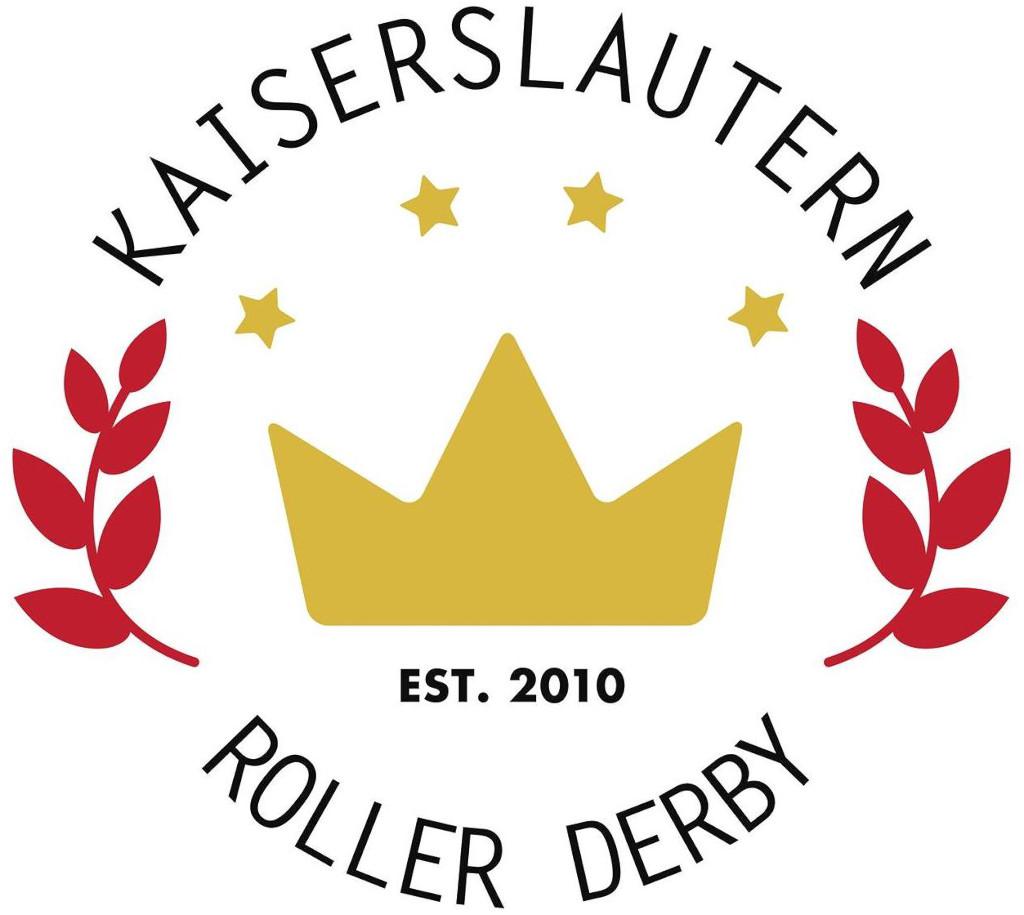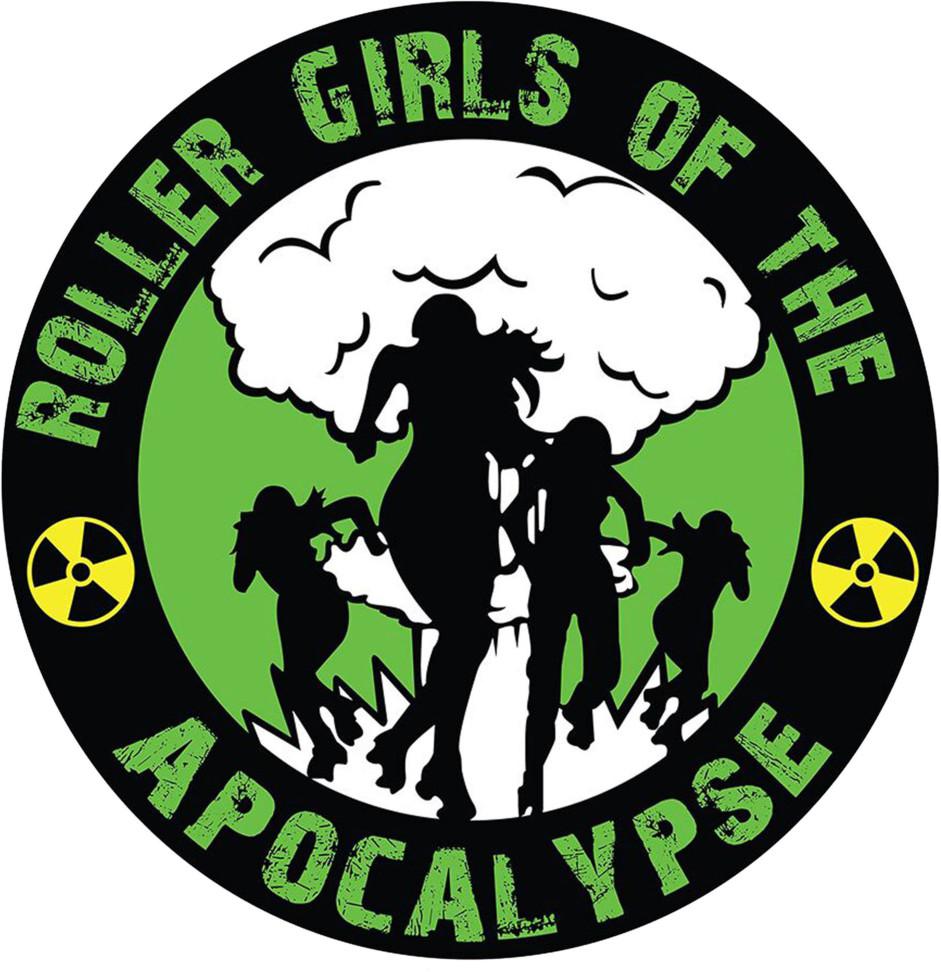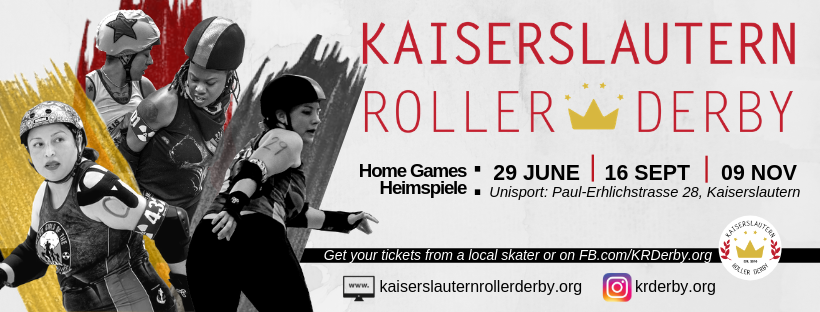Guest Post: Saving RGA by Becoming KRD
Recently, Kaiserslautern's Roller Girls of the Apocalypse underwent an extensive rebrand - not just the kind where you change a single noun, but a complete alteration of their league to "Kaiserslautern Roller Derby", along with a complete replacement of their league logo and colours!
We have been lucky enough to persuade KRD's Public Relations Chair, Felicity Fleet, to write up their thoughts on the rebranding process - and what it means to the league for us.
This article has also been hand translated by KRD's Lena Albert into German [available by clicking the Deutsch link in the left pane under "Scottish Roller Derby Blog"]!
My first roller derby boot camp as an assessed skater provided me with an understanding of the Roller Girls of the Apocalypse (RGA) brand in the wider European roller derby community. “Some years RGA is really good, and some years we wonder ‘what happened’?” a veteran German skater commented to me. This would become a familiar refrain as I began to travel and play with or against other teams. As a skater developed in RGA’s Fresh Meat program, I could easily answer “what happened”: A new skater with little experience, like me, replaced a veteran skater. And it’s no one’s fault. That’s what RGA is as a league.
RGA is a German league in Kaiserslautern with membership primarily from the surrounding American military community. If you don’t know much about the U.S. military, here’s a quick debrief: U.S. military members generally stay in one place for 2-4 years before they are required to move for their job. In 2018, RGA lost 13 skaters or officials to military moves. By the end of 2019, 12 more players will have left.
The consequence is that RGA serves as a great feeder league. We have sent well-trained skaters to top leagues in the USA, and we have trained a number of promising new skaters in our 6-month Fresh Meat program who are forced to take their potential elsewhere shortly after they pass assessments. During the years we see a large exodus of members, the role of our veteran players in the league changes from “valued player” to “valued trainer”. Our vets will spend most of their own training time helping newer members learn the game and gain skills, while losing their own ability to train at a higher level. Consequently, our veteran skaters play the next year or two at a lower competitive level than they are capable, since most of their teammates are new. Surrounding teams meet us on the track and ask “what happened?” to our level of play. Then the newer players become good players, the exodus begins, and the cycle continues.
Eventually, we had to question if this is a sustainable model for our league. We had to have some hard conversations and genuine self-reflection as we considered our brand in the community and what it means to be competitive.
What is a League’s Brand?
Brands are outward – they are others’ perceptions of you. A brand is created at the intersection of how you portray your league to the world and how your league is perceived by others. RGA went through several discussions when considering our path forward (partly because the board member who initiated the rebrand moved back to the USA before it was complete and it was taken over by other hands). We came up with the following: We know we want to maintain our competitive status in Europe. To do that, we need to create more stability in our membership. RGA’s rebrand to Kaiserslautern Roller Derby (KRD) is our first step in our roadmap to get there.

The new Kaiserslautern Roller Derby logo, in gold-black-and-yellow.
1. What’s in a Name? Inclusivity
The original intent of the rebrand was to be more inclusive of gender, so we determined it was time to change our name. First, we aren’t girls: we are strong, athletic women. Second, we aren’t all women, because we have male officials who are part of our league and the name “Roller Girls” excludes them. Finally, we also wanted to make sure transgender or gender binary individuals feel welcome, so we are doing our best to move away from gendered identifiers.
2. Who We Are vs. Who We Want to Be (Vision, Mission, Core Values)
Although we want to be more inclusive of individuals, we also want to maintain our competitive edge. Thus, our difficult conversations sounded like this: “We are competitive!” “What do you mean? We only have a few veteran skaters, everyone else is new.” Or “Most of our players are only in Europe for a short time – they want to travel, not spend all their time practicing roller derby!” Or “We can’t play the same teams we played last year due to attrition. Our players are too new. We can’t play at that level anymore.” We need to recognize the truth. Some years we’ll have an incredible team that can go toe-stop to toe-stop with the best of them. Other years it’s like we are starting over with the freshest skaters. And it’s no one’s fault. That’s what RGA is as a league.
People gravitate to derby for all types of reasons: to exercise, to find community, to live in the “derby girl” culture, and more. We respect all of those reasons, and as a team had to determine what our primary purpose is at this juncture.
So, we set about developing a vision, mission and core values that we hope will help attract individuals to help us reach our goals of stable membership to build and maintain competitive gameplay. We still want to keep the awesome culture that comes with derby; face paint and fishnet stockings are always welcome! But, we also want to state upfront that we are looking for individuals who are interested in helping us form an actual team – not a rag-tag group of players, but those who want to invest themselves in the sport and eventually join our current veteran players in high-level play; this will allow us to create B-Team and recreation teams later on for players-in-training or those who cannot invest the amount of time needed to be competitive.

The Old "RollerGirls of the Apocalypse" logo, in green and black with radiation signs!
3. What’s in a Name? Part 2: Truly Becoming German
With our understanding of our vision and mission, this led us back to the question of inclusivity. The name RGA did not tie us to a region or town, so there is no immediate recognition that we are a hometown team. Changing our name to include our hometown, Kaiserslautern, allows us to overcome this barrier.
Additionally, since we are majority American, we tend to focus on marketing and recruiting to our own community (and primarily in English). We are striving to do a better job at going outside our personal communities. We are making connections with the Welcome in Rheinland-Pfalz program, joining local German-American groups, and translating as much as possible in German (thanks immensely to the few German members we have and the error-prone Google Translate).
In addition to overcoming personal and marketing barriers to recruitment, we recognize there are natural barriers (I can’t skate/I don’t have time for all the practices/I can’t make the practice times, etc) as well as cultural barriers. It can be intimidating to join a team that is primarily American and speaks mostly English. It’s uncomfortable to try (and fail, as practice often requires) at skating or skating techniques, let alone to do it in a foreign culture and language. As more Germans join our league, however, the less difficult this will become. We hope to soon have more German members who are willing to help us pave the way.
It’s a process we are working through now, with the hope that we can become the team we want to be: truly Germany-American with stable membership that allows us to maintain our competitive status year over year, continue our great training program, and keep members at all skill levels highly engaged and enjoying the sport they love.
That’s what Kaiserslautern Roller Derby aims to become as a league.

Advert banner for KRD's new season, showing how the new logo and colours can be used for an effective branding.
